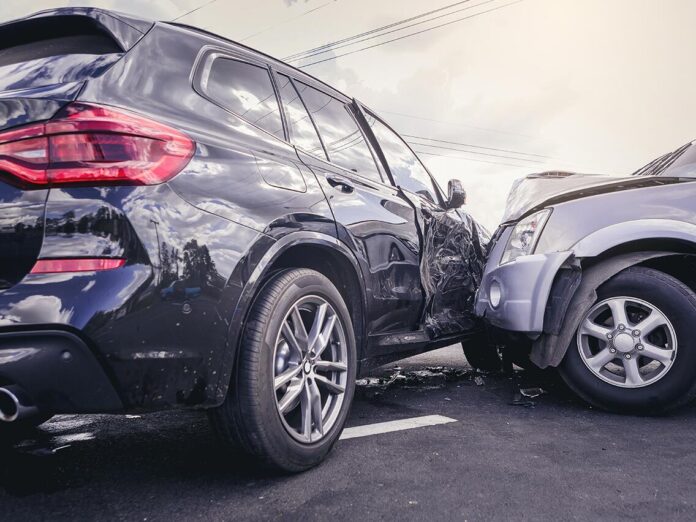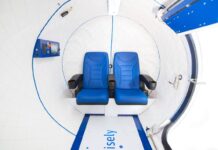It’s an unfortunate reality, but the vehicles we use to travel daily kill and injure over a million each year. If you’ve recently suffered a car accident, you may consider yourself lucky that you walked away with no injuries or just a few scrapes and bruises.
However, not all injuries make themselves known immediately. There are delayed symptoms that you should watch out for during the days and weeks following the accident. If you are experiencing any of these symptoms, contact a personal injury attorney firm like this one to ensure you win any due compensation. In the meantime, keep an eye out for these seven delayed injury symptoms in the wake of your wreck.
What to do immediately after a car accident

While monitoring for delayed injury symptoms is a pivotal part of accident aftercare, a driver involved in a multi-car pileup shouldn’t allow piling up anxiety or shock to cloud their judgment in the heat of the moment. After shattered windshield glass touches down on the asphalt and the reverberation of colliding metal ceases to ring in drivers’ ears, it’s time to act fast.
As a first step, inspect your body for physical signs of injury: deep gashes, bruising, bleeding, etc. Repeat this step for other passengers in the vehicle. Once you’ve screened for cuts, scrapes, and broken bones, assess whether your injuries or your passengers’ injuries require immediate medical intervention. If so, call 911 or advise bystanders at the scene of the accident to do so. After first responders have been contacted, stay put to avoid exacerbating existing injuries.
Should you evaluate that your injuries are minimal to non-existent, proceed by relocating the vehicle to the side of the road–if auto body and internal vehicle damage don’t prohibit a relocation. By pulling over, you can keep your distance from road hazards and rubbernecking drivers, which can expose you to further danger.
From there, handling the automobile accident aftermath is only a matter of waiting for emergency personnel, exchanging information with affected drivers, documenting the accident, and notifying your insurer. Once you arrive home and have checked off the following to-do list items, it’s time to keep your eyes peeled for delayed injury symptoms.
Common car accident injuries
While patrolling for symptoms should be priority number one, avoid getting lost amidst the trees and losing sight of the forest. Following an automobile accident, simply tallying up your injuries won’t be enough to stave off long-term side effects.
It’s vital to understand what these injuries could indicate, i.e., a traumatic brain injury (TBI), spinal cord injuries, fractures, broken ribs, whiplash, or soft tissue damage. Otherwise, you may shrug off a post-accident headache or stomach ache as side effects of insurance-claim-induced stress, when these symptoms may be the first warning signs of TBIs or internal injuries to rear their heads.
Remember, the injuries below should not be taken lightly. At the first sign of trouble, contact a medical professional. Otherwise, depression and a deteriorating attention span from an untreated concussion may be the price you pay for a complacent attitude. With these long-term consequences in mind, review the following injuries in grave detail.
1. Headaches

Headaches from a car crash are a common symptom. When you hit your head in a collision, your brain can impact the inside of your skull, leading to swelling or bruising of the brain tissue.
Headaches in the weeks following the crash can indicate a more severe problem like blood clots, brain injury, or injury to your neck or head. It could also be a sign of a concussion. That’s why you should see a doctor after a car accident, even if you feel like your headache is minor.
2. Neck and shoulder pain
If you have neck and shoulder pain after a car crash, you may have sustained whiplash. Like with headaches, the pain of a neck or shoulder injury can appear days after the wreck. Pain and stiffness in your head, neck, and shoulders can signify that you sustained a spinal injury. If your upper body is in pain after an accident, you should seek a doctor’s advice for info related to diagnosis and recommended treatment.
3. Back pain

Back pain is another symptom of whiplash. If you experience back pain after a car wreck, you might also have a herniated disc, spinal injury, or a pinched nerve. These symptoms can cause painful mobility problems and worsen if left untreated.
Have a doctor assess your back pain after a car accident, even if the pain starts weeks later. Medical professionals can make suggestions on dealing with parts of your body that feel sore or tense.
4. Abdominal pain and swelling
Abdominal pain is a sign that there may be internal trauma or bleeding. External bruises can also accompany the pain, and you may feel dizzy or faint. Seek medical attention immediately if you experience abdominal symptoms, as internal bleeding is a life-threatening condition.
5. Numbness or tingling

Numbness is yet another symptom of whiplash. It can also indicate damage to the nerves or the spine. Contact a doctor to ensure you haven’t suffered whiplash or nerve damage if you lose feeling in your arms or hands after a car accident.
6. PTSD
Car accidents can cause mental problems as well as physical injuries. Post-traumatic stress disorder is a mental disorder that can result from trauma like assault, combat, or physical danger. This danger includes car accidents.
Symptoms of PTSD include vivid memories of the traumatic event, nightmares, and flashbacks. PTSD can be debilitating since it prevents you from carrying out everyday tasks without panicking. Talk to your doctor or therapist if you’re struggling to feel safe and calm in the aftermath of a car accident.
7. Changes in physical or mental behavior

Delayed injuries from a car accident can also cause personality changes or changes in physical behavior. Impaired thinking, memory problems, and vision or hearing issues are all symptoms of a brain injury. If you feel like a different person after your wreck, it may be worth scheduling a doctor’s visit.
Before you go
If you’ve been involved in a car accident, seek immediate medical help even if you don’t feel like you sustained any injuries. You could experience delayed symptoms later on, and some of these can be life-threatening. If you are experiencing late-onset symptoms, consult your doctor and your attorney for the next steps.






